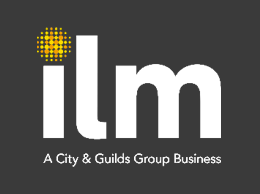In today’s fast-paced professional environment, workplace conflicts are inevitable. Whether you’re dealing with competing priorities, clashing personalities, or miscommunication, how you handle these challenging situations can significantly impact both your career progression and workplace harmony.
Understanding the Nature of Workplace Conflict
Workplace conflicts often stem from various sources: differing work styles, resource competition, unclear responsibilities, or personal disagreements. Recognising the root cause is crucial for implementing effective solutions. Rather than viewing conflicts as purely negative, consider them opportunities for growth, improved communication, and stronger professional relationships.
Early Recognition and Prevention
The most effective way to manage workplace conflict is to prevent it from escalating. Watch for early warning signs:
- Increased tension in team meetings
- Changes in communication patterns
- Reduced collaboration
- Body language indicators
- Decreased productivity
When you spot these signs, take proactive steps to address concerns before they develop into larger issues.
Below are some essential Strategies for Conflict Resolution
1. Maintain Professional Composure
Keep emotions in check, even when faced with challenging behaviour. Take deep breaths, step away if necessary, and approach the situation with a clear mind. Your composed demeanour can help de-escalate tensions and set the tone for productive dialogue.
2. Practice Active Listening
Give your full attention to understanding others’ perspectives. Avoid interrupting, maintain eye contact, and demonstrate engagement through appropriate non-verbal cues. Summarise what you’ve heard to ensure accurate understanding and show respect for others’ viewpoints.
3. Use “I” Statements
Frame your concerns using “I” statements rather than accusatory language. For example, say “I feel concerned when deadlines are missed” instead of “You always submit work late.” This approach reduces defensiveness and opens the door for constructive dialogue.
4. Seek Common Ground
Focus on shared goals and interests rather than positions. Often, conflicting parties have more in common than they realise. Identifying these areas can create a foundation for resolution and future collaboration.
When to Involve Others
Sometimes, despite your best efforts, conflicts require additional support. Don’t hesitate to:
- Consult your line manager for guidance
- Involve HR for serious issues
- Seek mediation from neutral parties
- Document significant incidents and agreements
Building a Positive Workplace Culture
Prevention is better than cure. Foster a positive workplace culture by:
- Establishing clear communication channels
- Setting explicit expectations
- Regularly checking in with team members
- Celebrating diversity of thought and approach
- Providing feedback constructively
Remember that conflict resolution is a skill that improves with practice. Each challenging situation presents an opportunity to refine your approach and develop greater emotional intelligence. The goal isn’t to eliminate conflict entirely but to handle it professionally and constructively.
Futureproof Training have a wide range of support which can help managers when it comes to having difficult conversations, giving feedback, setting clear performance objectives, dealing with conflict and undertaking effective performance appraisals. Please visit People Management Short Courses page on our website for further course information or email info@futureproof-training.co.uk






